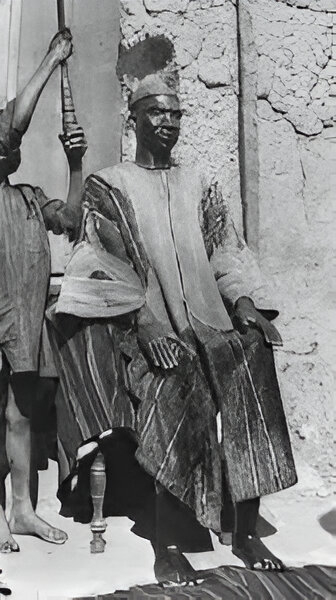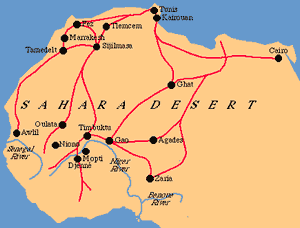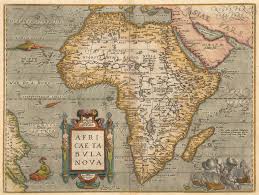True Life Story of Àarẻ Kurunmi of Ijaiye: The Yoruba Warrior Who Lost His Five Sons in One Day

True Life Story of Àarẻ Kurunmi of Ijaiye: The Yoruba Warrior Who Lost His Five Sons in One Day
Discover the true life story of Àarẻ Kurunmi of Ijaiye, the fearless Yoruba warrior who faced tragedy and honorably lost his five sons in a single day during war.
History often immortalizes individuals whose lives were marked by bravery, tragedy, and unwavering principles. Such is the story of Àarẻ Kurunmi of Ijaiye, a Yoruba warrior whose resolute defense of tradition led to a devastating loss that continues to resonate in Yoruba history and culture.
Tradition and Power in the Yoruba Empire
In the annals of Yoruba history, the Àarẻ-ona-Kakanfọ́ was a position of immense power and responsibility, second only to the Alaafin of Oyo. The Àarẻ served as the generalissimo of Yoruba warriors, entrusted with the defense of the empire and the enforcement of its laws. Tradition dictated that the Àarẻ could not reside in the same town as the Alaafin, as their powers were considered equal.
During the reign of Alaafin Atiba, the Oyo Empire faced a pivotal moment. A longstanding tradition mandated that upon the death of the Alaafin, his heir, the Aremo, must also die to prevent power struggles. This practice ensured stability by eliminating any ambition among princes to expedite their ascension to the throne.
Alaafin Atiba’s Proposal
Alaafin Atiba, seeking to preserve his lineage, summoned the kings and lords of the Yoruba towns, including the Àarẻ Kurunmi of Ijaiye, the Timi of Ede, and Balogun Ibikunle of Ibadan. At this historic meeting, Atiba descended from his throne, holding the sword of Ogun, the god of iron, in one hand and the bolt of Sango, the god of thunder, in the other. He charged those present to swear an oath that after his death, his son, Aremo Adelu, would ascend the throne.
While other leaders acquiesced, Àarẻ Kurunmi stood firm. He argued that tradition must be upheld: upon the death of the Alaafin, Aremo Adelu must follow. For Kurunmi, breaking this sacred custom was unthinkable. Unable to sway him, the meeting ended in discord, with Kurunmi returning to Ijaiye to prepare for the inevitable conflict.
The Path to War
News of Kurunmi’s defiance spread quickly. In Ibadan, Balogun Ibikunle’s lieutenant, Basorun Ogunmola, seized the opportunity to advocate for war against Kurunmi. Ogunmola bore a personal grudge, having previously been humiliated by Kurunmi. Alaafin Atiba, seeing no resolution, sent emissaries to Kurunmi with two calabashes: one containing an effigy of twins (a symbol of peace) and the other filled with gunpowder (a symbol of war). Kurunmi chose war.
Despite warnings from the oracle that he would lose the war if he crossed the River Ose, Kurunmi pressed on, confident in his warriors and his cause. Meanwhile, Ibadan forces, led by Ogunmola, secured the aid of the Egba people, who crafted a potent charm known as “Eedi.” This charm was designed to compel Kurunmi’s warriors to disregard warnings and cross the river, a fatal mistake.
The Tragedy Unfolds
When the war began, Kurunmi sent his five sons to lead the charge against Ibadan. Initially, the Ijaiye forces overwhelmed their opponents, driving them back across the River Ose. But under the influence of the Eedi charm, Kurunmi’s warriors crossed the river despite the oracle’s warning. Their charms failed them, and they fell into an ambush. Thousands of Ijaiye warriors, including Kurunmi’s five sons, were slaughtered.
The news of his sons’ deaths broke Kurunmi. Though devastated, he remained steadfast in his belief that he had acted rightly in defending tradition. However, his spirit was irreparably shattered. Facing the prospect of defeat and humiliation, Kurunmi took his own life by consuming poison. In his final act of defiance, he instructed that his body be cast into the River Ose, denying his enemies the satisfaction of desecrating his remains.
Legacy of Àarẻ Kurunmi
Kurunmi’s story is one of honor, tragedy, and the complexities of leadership. His resistance to Alaafin Atiba’s reforms was rooted in a deep respect for tradition, yet it cost him everything. His actions and their consequences highlight the tension between progress and preservation that many societies face.
Today, Kurunmi is remembered as a symbol of unwavering commitment to principle. His tale is recounted in Yoruba oral traditions, literature, and theater, serving as a poignant reminder of the sacrifices made in the name of duty.
While his resistance may have ultimately led to his downfall, Àarẻ Kurunmi’s legacy endures, etched into the history of the Yoruba people as a testament to the enduring power of tradition and the human spirit.


